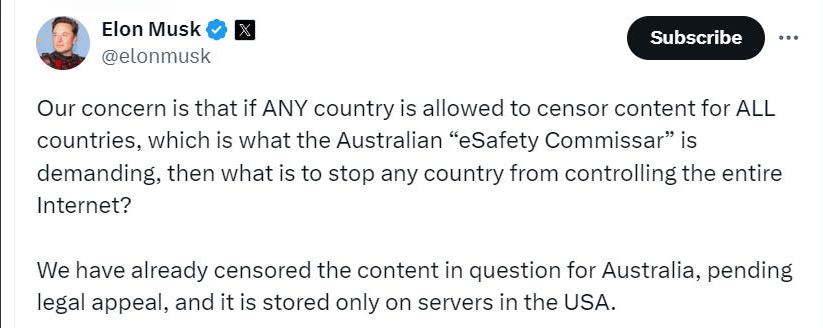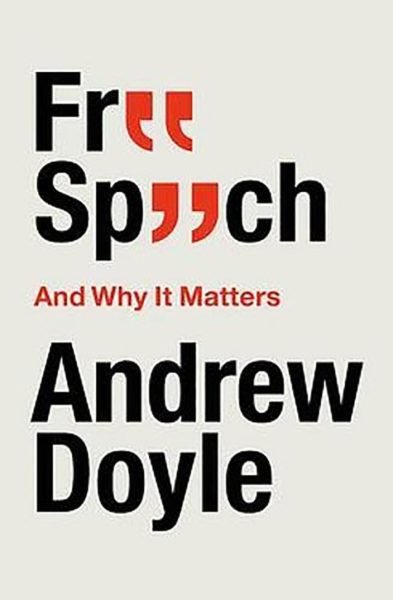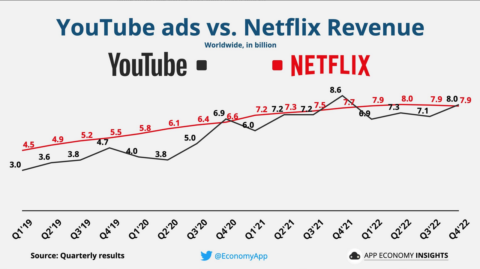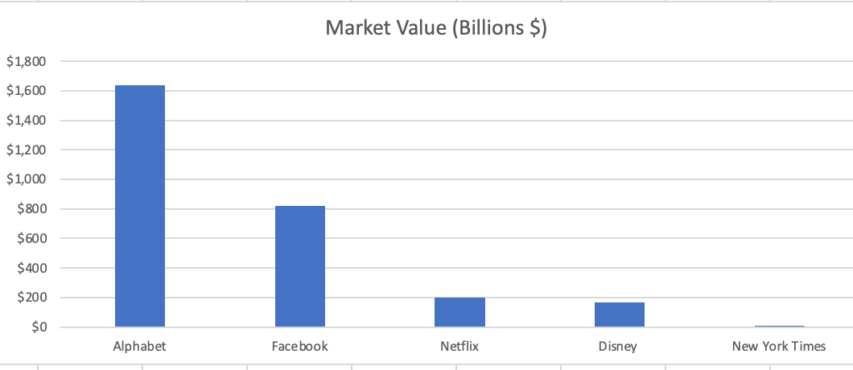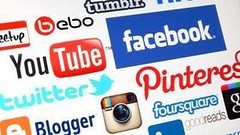I question the idea that modern life has increased the total amount of lunacy in the world. Thanks to the Internet in general, and social media in particular, the volume of the world’s lunatic population has been amped well past 11 … but I think this is less a case of “Twitter creating lunatics” than “online anonymity letting people fly their freak flags openly”. Deliberately avoiding sex and politics, an example: On a road trip recently, I started flipping channels in my hotel room, and I came across a show called Dr. Pimple Popper. I swear, this is absolutely a real thing that exists. Here’s this woman, a dermatologist I guess, rooting around in cysts and boils and tumors and whatnot for the cameras, and … that’s it.
Not only is there an audience for this — which I never would’ve believed — there’s enough of an audience for it that it’s on basic cable. See what I mean? Somehow, the marketing guys determined that yes, there are enough people out there who want to see cysts being cauterized that we can make an entire show out of it. How could they figure it out? Beats me, but unless some suits at TLC had a contest to see what’s the silliest, grossest thing they could actually get broadcast, I’m betting that there was a group of Internet weirdos out there discussing it, and the marketing boys just ran with it.
Applying that to the topic at hand, my guess is that, since it’s so easy for people to be Massively Online these days, the kind of folks with that particular type of mental problem pretty much live on Twitter, where — as anyone who has waded into that cesspit for more than five minutes knows — the Twitterati absolutely cannot distinguish “talking about doing something” from “actually doing something”.
Severian, “Friday Mailbag”, Rotten Chestnuts, 2021-06-04.
July 3, 2024
June 15, 2024
May 6, 2024
The Canadian Army defiles updates its online branding
Shady Maples isn’t too impressed with the new corporate image “icon” the Canadian Army extruded onto their TwitX account last week:

The Canadian Army’s dysenteric moose shitting itself to death, er, I mean “The Canadian Army’s latest supplementary icon for online use”
The Canadian Army needs to get its shit together on Twitter, not because Twitter is important, but because people believe that Twitter is important. If you follow official accounts, then you’re probably tracking the Army’s latest update to its corporate branding.
Within hours the Army was
furiously backpedalingclarifying that our new digitalized Rorschach test wasn’t a replacement logo, but an “icon” that “will be used in the bottom left corner of certain communications products and in animations for videos”. This was a bigger news event than the announcement itself.When I first saw this thing, I thought it was a maple leaf blowing past north Africa. Could this be Straussian commentary on our National Defence Strategy? Perhaps, but now thanks to Twitter all I see when I look at it is a dysenteric moose shitting itself to death (and now you do too).
The hook in all this isn’t the new branding, which is just a drop in CAF’s vast ocean of PowerPoint phluff, the visual equivalent of white noise. It’s also not in the backlash either, because that’s just another Tuesday on Twitter. You see, unlike the Iranian nuclear program or whatever’s happening between Drake and Kendrick Lamar, the CAF is not a topic of serious international concern.
Come for the mocking of the icon, stay for the contrasting social media appearances of Canadian and Israeli Lieutenants General.
April 24, 2024
Australia cribs from Trudeau’s notes and tries to censor the internet outside their borders
Tim Worstall explains to the Australian federal government why their attempt to force Elon Musk to obey Australian diktats on Twit-, er, I mean “X” outside Australia is extreme over-reach and should be firmly rejected:
It’s entirely true that Elon Musk is a centibillionaire currently telling the Australian Government that they can fuck off. It’s also true that if Elon Musk were of my level of wealth — or perhaps above it and into positive territory — he should be telling the Australian Government to fuck off.
This also applies to the European Union and that idiocy called the right to be forgotten which they’ve been plaguing Google with. Also to any other such attempts at extraterritoriality. Governments do indeed get to govern the places they’re governments of. They do not get to rule everyone else — the correct response to attempts to do so is fuck off.
So, Musk is right here:
What this is about doesn’t really matter. But, v quickly, that attack on the Armenian Church bishop is online. It’s also, obviously, highly violent stuff. You’re not allowed to show highly violent stuff in Oz, so the Oz government insist it be taken down. Fair enough – they’re the government of that place. But they are then demanding further:
On Monday evening in an urgent last-minute federal court hearing, the court ordered a two-day injunction against X to hide posts globally….
Oz is demanding that the imagery be scrubbed from the world, not just that part of it subject to the government of Oz. Leading to:
Australia’s prime minister has labelled X’s owner, Elon Musk, an “arrogant billionaire who thinks he is above the law”
And
Anthony Albanese on Tuesday said Musk was “a bloke who’s chosen ego and showing violence over common sense”.
“Australians will shake their head when they think that this billionaire is prepared to go to court fighting for the right to sow division and to show violent videos,” he told Sky News. “He is in social media, but he has a social responsibility in order to have that social licence.”
To which the correct response is that “Fuck off”.
For example, I am a British citizen (and would also be an Irish one if that country ever managed to get up to speed on processing foreign birth certificates) and live within the EU. Australian law has no power over me — great great granny emigrated from Oz having experienced the place after all. It’s entirely sensible that I be governed by whatever fraction of EU law I submit to, there are aspects of British law I am subject to as well (not that I have any intention of shagging young birds — or likelihood — these days but how young they can be is determined not just by the local age of consent but also by British law, even obeying the local age where I am could still be an offence in British law). But Australian law? Well, you know, fu.. … .
April 8, 2024
“At the time of writing, the Scottish first minister Humza Yousaf edges J. K. Rowling in the battle for the inaugural title of Scotland’s Most Hateful Person”
At Oxford Sour, Christopher Gage updates us on the mental gymnastics required to navigate Scotland’s new hate crime law:

To the surprise of many terminally online folks, J.K. Rowling is not the top offender under Scotland’s new hate crime law. That “honour” goes to Scotland’s current first minister, Humza Yousaf for a speech delivered several years ago.
One-third of the Scottish police are yet to receive any training on this sweeping new law. Amongst the rank-and-file, the spectre of threatening and abusive material seeping out of public performances such as plays creeps like sarin gas. Such forbidden filth threatens to mutate ordinary Scots into far-right zombies, parroting Andrew Tate’s pitiful jock philosophy.
Police have absorbed over 4,000 reports of hate crimes in the first 48 hours. Mercifully, many Scots are still evidently well-versed in the timeless Scottish art of taking the piss. At the time of writing, the Scottish first minister Humza Yousaf edges J. K. Rowling in the battle for the inaugural title of Scotland’s Most Hateful Person. Second prize, I believe, is a set of steak knives.
Not to worry, those coppers recently announced a new “proportional response strategy”. Police will no longer investigate crimes such as smashed windows, or run-of-the-mill thefts. This “new approach” to policing, which contravenes the very definition of policing, saves the rozzers 24,000 fewer investigations and 130,000 man-hours per year. That leaves plenty of time to investigate those unenlightened beings poxed with the false belief that women don’t have cocks.
Nobody has any idea what is going on. On the first day of the Scottish Unenlightenment, a Scottish National Party minister said J. K. Rowling’s gender-critical tweets could bring the coppers to her door.
On Twitter, J. K. Rowling had reeled off a string of photographs of trans people. She then called those biological men “men”.
Siobhian Brown, the SNP’s community safety minister, had claimed referring to a trans woman as a “he” would not break the new law. Later on, she said the police would decide whether such misgendering would count as a hate crime.
“It could be reported, and it could be investigated. Whether or not the police would think it was criminal is up to Police Scotland for that”, said Brown.
You could taste the acrid, small-town glee steaming from the repressive and literal minded. Rajan Barot, a former fraud prosecutor for the Crown Prosecution Service, warned Rowling that her Twitter posts, many of which state that biological men are not and cannot become women, would most likely contravene the new law and advised her to delete them.
Police later confirmed the very rich and very visible author would not face prosecution for her stubborn grasp of biological reality — at least whilst the universe watched on in a state of unadulterated fremdschämen.
April 1, 2024
March 1, 2024
Understanding the modern media
It’s hard for Baby Boomers and even some older Gen X folks to grasp just how much the mainstream media has changed since the 1960s and 70s. Helpfully, Severian provides the context to properly understand what drives them and why they do the things they do:

Proposed coat of arms for Founding Questions by “urbando”.
The Latin motto translates to “We are so irrevocably fucked”.
There is no local news, because all “news” is Apparat audition tape. Back when — back when they were called “reporters” — news people had a clear career progression within a specific industry. A hungry young reporter for the Toad Suck, Nebraska, Times-Picayune might end his days as a reporter for the New York Times or Washington Post, but that was as high as he could reasonably expect to go. Same with the television division — the bobblehead at WSUX in Toad Suck might end up, at most, on CNN or Fox.
These days, though, they call themselves “journalists”, and “journalist” is just an entry-level Apparat post. They’re not just auditioning for the NYT or CNN, of course. A hungry young “journalist” might end xzhyr career at either, of course, but also as a corporate communications director, a political campaign consultant, a professor of “journalism”, a Diversity Outreach Coordinator, any one of a million “Media strategies” and “Media consulting” gigs … or, of course, as an outright lobbyist, because all of those are just euphemisms for “lobbying” anyway.
And that’s before you consider that all the “independent” papers and stations have been bought up by huge conglomerates, and depend on advertising revenue. Noam Chomsky was right — the Media does dance to the tune its corporate paymasters’ call. He was just wrong on those paymasters’ political orientation. Combine all that, and even the most straight-up, just-the-facts-ma’am local “news” story will find some way to insert The Sermon. If you don’t see The Sermon, you’ve either found an incompetent journalist (which happens) … or you might be looking at something subtle.
[…]
The Media, like Skynet, is self-aware. This significantly complicates the stoyachnik‘s task, as The Media understands its own power, and it increasingly wants to drive Narratives itself, especially as its power is on the verge of… well, not collapse exactly, but certainly a sea change. Because The Media is not monolithic, and that’s part of its self-awareness. So many “journalists” do nothing but hit refresh on Twitter all day, and Twitter knows this — that makes Twitter the real power broker. Google, too, obviously is more self-aware than traditional Media. That ludicrous AI image generator represents years of effort; they expended enormous resources to get precisely that result. They understand how utterly dependent the lower layers of The Media are on them; they are more self-aware.
Let us […] use Google’s own AI “summarizer” to refamiliarize ourselves with the tale of Comrade Ogilvy:
Comrade Ogilvy is an imaginary character in the novel 1984, created by Winston Smith to replace Comrade Withers, an Inner Party member who has fallen into disgrace and been vaporized. Comrade Ogilvy supposedly lived a patriotic and virtuous life, supported the party as a child, designed a highly effective hand grenade as an adult, and died in action at the age of 23 while protecting important dispatches for his country. He did not drink or smoke, was celibate, and only conversed about Party philosophy, Ingsoc. Comrade Ogilvy displays how easy it is for a member of The Party to be pulled from thin air, and how determined The Party is to keep unpersons from the media.
The Apparatchiks at Google are more self-aware than the Apparatchiks at, say, the New York Times. That is, they understand their place in the Apparat better, and see the networks more clearly. They know how mal-educated “journalists” are, far better than the “journalists” themselves do. Google, like Winston Smith, knows full well that there’s no Comrade Ogilvy. But the “journalists” at the New York Times who are utterly reliant on Google for their “facts” do NOT know this. How could they?
And thus, the only White people in all of human history were Nazis. At least according to Google’s AI image generator, and therefore — soon enough — it’s what “everybody knows”. (And it’s necessarily recursive. The second generation of Google engineers will not know there’s no Comrade Ogilvy, any more than the current generation of “journalists” does).
February 16, 2024
December 9, 2023
The coming Micro-Macro culture war … and who’s going to win it
Ted Gioia outlines the dismal state of the “macro” culture — television, movies, newspapers, book publishing and all the big corporations that control them — with the dynamism of the “micro” culture:
In the beginning, all culture was microculture.
You knew what was happening in your tribe or village. But your knowledge of the wider world was limited.
So you had your own songs and your own stories. You had your own rituals and traditions. You even had your own language.
But all these familiar things disappeared when you went off into the world. That was dangerous, however. That’s why only heroes, in traditional stories, go on journeys.
You learn on the journey. But you might not survive.
But all that changed long before I was born.
In my childhood, everything was controlled by a monoculture. There were only three national TV networks, but they were pretty much the same.
When I went to the office, back then, we had all watched the same thing on TV the night before. We had all seen the same movie the previous weekend. We had all heard the same song on the radio while driving to work.
The TV shows were so similar that they sometimes moved from CBS to NBC, and you never noticed a change. The newscasters also looked pretty much the same and always talked the same — with that flat Midwestern accent that broadcasters always adopted in the US.
The same monoculture controlled every other creative idiom. Six major studios dominated the film business. And just as Hollywood controlled movies, New York set the rules in publishing. Everything from Broadway musicals to comic books was similarly concentrated and centralized.
The newspaper business was still local, but most cities had 2 or 3 daily newspapers — and much of the coverage they offered was interchangeable. Radio was a little more freewheeling, but eventually deregulation allowed huge corporations to acquire and standardize what happened over the airwaves. [NR: I suspect the “freewheeling” went away once the government started imposing regulations, and the corporate consolidation was enabled when they “deregulated” the radio licensing regime several decades later.]
When I went to work in an office, back then, we had all watched the same thing on TV the night before. We had all seen the same movie the previous weekend. We had all heard the same song on the radio while driving to work.
And that’s why smart people back then paid attention to the counterculture.
The counterculture might be crazy or foolish or even boring. But it was still your only chance to break out of the monolithic macroculture.
Many of the art films I saw at the indie cinema were awful. But I still kept coming back — because I needed the fresh air these oddball movies provided. For the same reason, I read the alt weekly newspapers and kept tabs on alt music.
In fact, whenever I saw the word alt, I paid attention.
That doesn’t mean that I hated the major TV networks, or the large daily newspaper, or 20th Century Fox. But I craved access to creative and investigative work that hadn’t been approved by people in suits working for large organizations.
The Internet should have changed all this. And it did — but not much. Even now the collapse in the monoculture is still in its early stages.
But that’s about to change.
If you don’t pay close attention, the media landscape seems pretty much the same now as it did in the 1990s. The movie business is still controlled in Hollywood. The publishing business is still controlled in New York. The radio stations are still controlled by a few large companies. And instead of three national TV networks plus PBS, we have four dominant streaming platforms — who control almost 70% of the market.
So we still live in a macro culture. But it feels increasingly claustrophobic. Or even worse, it feels dead.
Meanwhile, a handful of Silicon Valley platforms (Google, Facebook, etc.) have become more powerful than the New York Times or Hollywood studios or even Netflix. It’s not even close — the market capitalization of Google’s parent Alphabet is now almost ten times larger than Disney’s.
But here’s the key point — these huge tech companies rely on the microculture for their dominance.
Where is Facebook without users contributing photos, text and video? Where is Google’s YouTube without individual creators?
In terms of economic growth or audience capture, the microculture has already won the war. But it doesn’t feel that way.
Why not?
First and foremost, Silicon Valley is a reluctant home for the microculture. To some extent Alphabet and Facebook are even going to war with microculture creators — they try to make money with them even while they punish them.
- So Mark Zuckerberg needs creators, but won’t even let them put a live link on Instagram and limits their visibility on Facebook and Threads.
- Alphabet needs creators to keep YouTube thriving, but gives better search engine visibility to total garbage that pays for placement.
- Twitter also claims it wants to support independent journalists — but if you’re truly independent from Elon Musk, your links are brutally punished by the algorithm.
This tension won’t go away, and next year it will get worse. The microculture will increasingly find itself at war with the same platforms they rely on today.
And legacy media and non-profits are even more hostile to emerging media. Go see who wins Pulitzer Prizes, and count how many journalists on alternative platforms get honored.
I’ll save you the trouble. They don’t.



